Photo credits: Hulton Archive/Getty Images
“Injustice anywhere is a threat to justice everywhere.” — The Reverend Dr. Martin Luther King, Jr.
Over the two decades between Israel’s establishment in 1948 and Dr. Martin Luther King, Jr.’s racially and politically-motivated assassination in 1968, during which the Palestinians suffered continuous defeat and displacement, he hardly highlighted their misery.
In contrast, King consistently and several times voiced his support for Israel. The quotes are well-known and do not need repetition. The most often quoted was said by King shortly before his death in March 1968:
“Peace for Israel implies security, and we must safeguard its right to exist and territorial integrity with all our strength. I regard Israel, and I have no qualms about stating this, as one of the great outposts of democracy in the world and a magnificent example of what is possible, of how barren terrain can be converted into a brotherhood and democratic oasis. For Israel, peace implies security, and this security must be a reality.”
The challenge for columnists like Michelle Alexander and historians like Robin D.G. Kelley, as well as those who share their views, is that there are no quotes to refute this. King remained mostly mute on the suffering of the terribly oppressed Palestinians.
The historian Ussama Makdisi (a nephew of Edward Said) holds the cynical opinion that King “repaid Jewish American support by turning a blind eye to the predicament of the Palestinians.” King’s followers cannot tolerate this interpretation, which accuses him of moral compromise. They would rather imply that King did not know much about the dispute or was himself conflicted.
Alexander implies as much when he writes, “the evidence surrounding King’s opinions on Israel is complex and conflicting.” It is undeniable that his beliefs were intricate.
Inconsistent, naive, and ignorant: this is how pro-Palestinian supporters have been seething at the fact that King never supported the stance they wish he had taken. To this, they sometimes add, as do Kelley and Alexander in agreement with him, that had King given the problem the same serious consideration he did the American war in Vietnam, he would have definitely spoken the correct words. Unfortunately, he ran out of time terribly.
A 2019 revelation of new evidence has proven the argument more fallacious than ever. It relates to a March 1959 visit by King and his wife, Coretta, to eastern Jerusalem and the West Bank, which was governed by Jordan at the time. The Kings were returning from India, where they had wanted to go to the Soviet Union. However, preparations fell apart. Instead, they landed at Jerusalem’s airport from Beirut, and four or five days later, they flew to Cairo, Egypt.
Kelley is more outspoken in the piece cited by Alexander, alleging that King’s views on Israel were “more complicated and more naive than is typically accepted.” The historian accuses King of having “a remarkable misunderstanding of the history [of the conflict] and the consequences of the 1967 war.”
This visit has long been common knowledge among historians and biographers. However, it was portrayed as a totally religious journey since King himself described it as such. On March 29, 1959, less than two weeks after his return, he delivered his lone story as an Easter Sunday sermon in Montgomery, Alabama.
The lecture was a “footsteps of Jesus” recounting the spiritual influence of touring Christian pilgrimage sites in the Old City of Jerusalem, Bethlehem, Hebron, Jericho, Nablus, and Mount Gerizim on the preacher. King connected each of these individuals to the life of Jesus. As he stood at the Church of the Holy Sepulcher, “the place where [Jesus] was crucified,” his thoughts and emotions reached their pinnacle.
“I will never forget the incident that occurred. And as I stood before the cross and the point, something within of me started to rise. There was a fascinating quality, something overtook me, and I found myself on my knees praying before I realized it. And before I realized it, I was crying. This was a phenomenal event that transformed the globe.”
King made merely a fleeting mention of the current political climate in his sermon. In defining what he meant by “Jerusalem,” he mentioned the city’s split into Israeli and Jordanian parts, as well as the difficulties of transit between them.
“As a result of the Arab-Israeli war, this city is split. The hatred is increased since you cannot return to an Arab nation for the duration of your passport’s validity,” King remarked.
When King’s papers were revealed, it was discovered that they also included a faint allusion to anything political that occurred during his visit.
“While in Jerusalem, we had several opportunities to discuss the Arab-Israeli conflict. As you are aware, this is still one of the world’s most challenging challenges,” King composed to a colleague.
Regarding King’s visit in 1959, the chapter opens new ground. Dr. Vicken Kalbian, an Armenian physician originally of Jerusalem and subsequently of Winchester, Virginia, where Fischbach interviewed him in 2011, was Fischbach’s second source for the visit. Upon their arrival in Jerusalem in 1959, it seems the King and his wife sought a physician. After Kalbian inspected them at their hotel, King expressed an interest in hearing the Arab perspective. Kalbian pledged to organize a meeting between the King and official Arabs.
He did so over a private dinner at the National Restaurant with five Palestinian leaders. No one knew who King spoke to until Michael R. Fischbach, a historian at Randolph-Macon College, conducted more research. All of Fischbach’s historical research is outside the scope of this article. Relevance comes from a chapter from his most recent publication, Black Power and Palestine (Stanford, 2019). Its title is Balanced and Protected: Martin Luther King Jr. on the Arab-Israeli Tightrope.
King spent an evening with the most articulate speakers of Arab Palestine; graduates of British institutions or the American University of Beirut who had or would serve Jordan as prominent ministers, diplomats, and authors. Several of them have already incurred significant personal losses in the battle with Israel.
The discussions would not have centered on the “occupation” or Israeli settlements. This occurred in 1959; more than several years prior to the 1967 war when both eastern Jerusalem and the West Bank were under Jordanian control. Instead, King’s hosts would have emphasized the injustice caused by Israel’s inception in 1948, which resulted in the displacement of hundreds of thousands of Palestinian Arabs. They would have emphasized the “plight of the refugees,” the majority of whom had lived in camps for over a decade.
And King would have seen these camps, at least from a distance, since there were over twenty camps recognized by the United Nations on the West Bank. They were not yet the urbanized neighborhoods they have subsequently become, but the initial tents had been removed.
“The refugees reside, family after family, in little houses built of brick or mud. Each family has an area of around four yards by five yards, regardless of the size of the family. They have access to water and sanitation, but no heat, and continue to endure extreme suffering,” reported a British observer, according to The Mosaic.
The majority of the population at that time were genuine refugees who left their homes in 1948. They were not stateless since Jordan had awarded them citizenship, but they still relied on United Nations aid services. Then, in Jerusalem, King would have heard the narrative and seen the still-raw repercussions of the 1948 “catastrophe,” or Nakba, as Palestinians now refer to it. Such an event was sufficient to convert a number of visiting Americans into ardent supporters of the Arab cause. Fischbach believed that it also had some influence on King and wrote:
“The journey enabled King to meet Palestinians face-to-face and hear their stories, which helped him comprehend the Palestinians’ suffering. As the 1950s progressed into the 1960s, King’s thoughts remained focused on the misery of the Palestinians and the Arab-Israeli conflict.”
There is no proof that King was affected by the “plight of the Palestinians.” Despite receiving a first-hand, on-the-ground education of Palestine in March 1959, he did not write or say anything about it. Alexander and Kelley later hypothesized that King would have ultimately supported the Palestinian cause and denounced Israel.
One can only speculate on the political circumstances, which may have precipitated this sooner — had Dr. King gotten blessed with the chance to live.






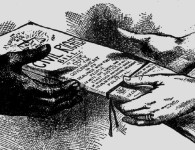

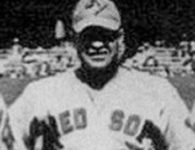
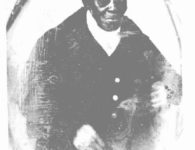

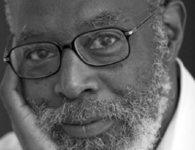

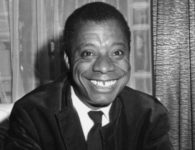
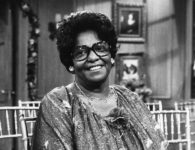
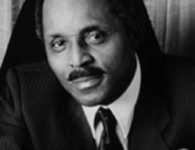
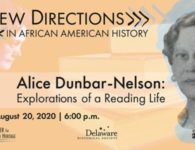
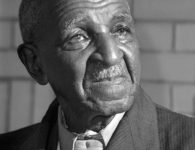
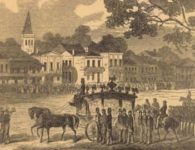


No comments